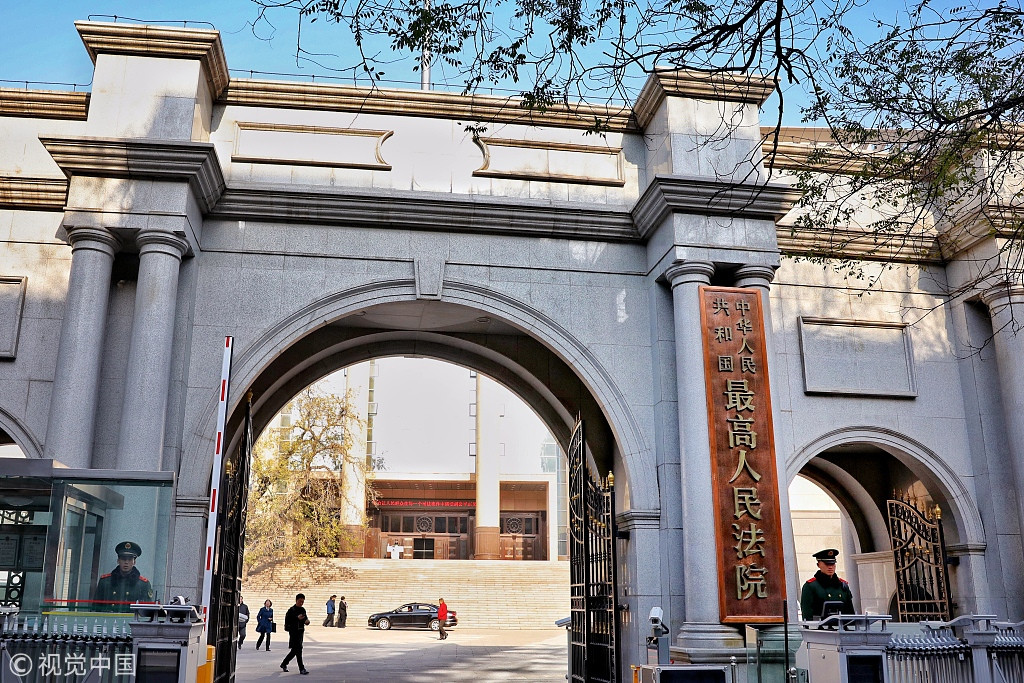
Opinion
20:25, 24-Apr-2019
China's judicial service can safeguard smooth implementation of BRI
Pan Deng

Editor's Note: Pan Deng is a member of the Academic Committee at the Charhar Institute and associate professor of China University of Political Science and Law. The article reflects the author's opinion, and not necessarily the views of CGTN.
With the further development of the "Belt and Road" Initiative (BRI), the scale of international investment and infrastructure construction between China and participating countries are continuously expanding. As a result, commercial and investment disputes have gradually increased. Properly handling and resolving these disputes is not only the premise and guarantee for the smooth implementation of the BRI, but also a challenge that must be addressed under its "rules-based" principle.
The question is, how? Which country's law should apply in settling the dispute? As the initiator of the BRI, what efforts has China made?
In fact, China has always attached great importance to the role of domestic justice in serving and safeguarding the development of the BRI. In July 2015, the Supreme People's Court issued "Opinions on People's Court's Provision of Judicial Service and Safeguards for BRI." Based on the characteristics of the BRI and China's practice in foreign commercial trial, and drawing on the best judicial concepts and practices worldwide, this document has made innovative provisions in terms of equal protection of the rights and interests of all parties, mutual judicial benefits, application of international treaties and practices, and judicial review in arbitration award concerning foreign interests.

VCG Photo
VCG Photo
Among them, the most watched institutional innovation is the International Commercial Courts of the Supreme People's Court, which were established in Shenzhen and Xi'an in June 2018 respectively. For the first time in China, commercial courts have set up expert committees composed of Chinese and foreign legal experts who are proficient in international law and lex patriae and have rich practical experience. These experts can not only mediate controversy at the choice of the litigants, but also be entrusted by the court to provide advice on technical matters.
The judges of courts are able to work in both Chinese and English. In view of a large amount of English evidence in foreign-related commercial disputes, judges will directly use English to review the file, and the parties need not provide Chinese translations.
Another change worth mentioning is also reflected in the change of attitude to the application of foreign laws.
In the civil and commercial cases, under the circumstances of no damage to national sovereignty, mandatory legal provisions and social public interests, it is a common practice to allow foreign laws to be applied to cases. Although China's 1986 General Principles of The Civil Law and 2011 Law of the Application of Law for Foreign-related Civil Relations have both approved such practice, due to the limited means for the ascertainment of foreign law, and the serious disputes over the practice between the parties, the courts always shied away from it in the past and tried to replace foreign law with Chinese law.
China's Supreme People's Court has issued several documents and guiding case in recent years, requiring courts at all levels to fully respect the parties' right to choose to apply foreign laws for trial. At the same time, the parties, the central authorities of the other party, Chinese embassies and consulates abroad, and foreign embassies and consulates in China are allowed to provide foreign legal texts.

The entrance of the Supreme People's Court in Beijing, China, November 30, 2018. /VCG Photo
The entrance of the Supreme People's Court in Beijing, China, November 30, 2018. /VCG Photo
Other means of legal text provision such as online review are also made available. The Supreme People's Court has also set up a Foreign law Ascertainment Center in the Comparative Law Institute at China University of Political Science and Law, where I work, to provide professional support to courts at all levels. Some universities and legal service institutions in China have also offered similar services to meet the personalized needs of the parties and various institutions.
In the past three years, I have participated as an expert in five trials under foreign laws, provided relevant legal texts, appeared in court for questioning by judges and parties, and participated in mediation led by judges. Although the parties concerned have fierce disputes over relevant legal facts, they still feel Chinese courts worthy of trust for allowing them to choose their familiar laws for trial.
None of these cases has been appealed, and there have even been cases in which the parties withdrew the lawsuit and reached a settlement. I personally feel that using the law chosen by the parties to conduct the trial is a good way to eliminate the misunderstanding of China's judicial system by Chinese and foreign parties in various countries along the Belt and Road, and also serves as the most convincing stories in demonstrating the law-based business environment under BRI.
With the development of the BRI, Chinese and foreign market players are increasingly concerned about judicial issues, and China's judicial service and safeguard for BRI will also be improved. China has the ability to undertake more international obligations and provide more public goods in related fields of the BRI, and also has the ability to provide precedence and guidance for the settlement of commercial disputes.
(If you want to contribute and have specific expertise, please contact us at opinions@cgtn.com)

SITEMAP
Copyright © 2018 CGTN. Beijing ICP prepared NO.16065310-3
Copyright © 2018 CGTN. Beijing ICP prepared NO.16065310-3